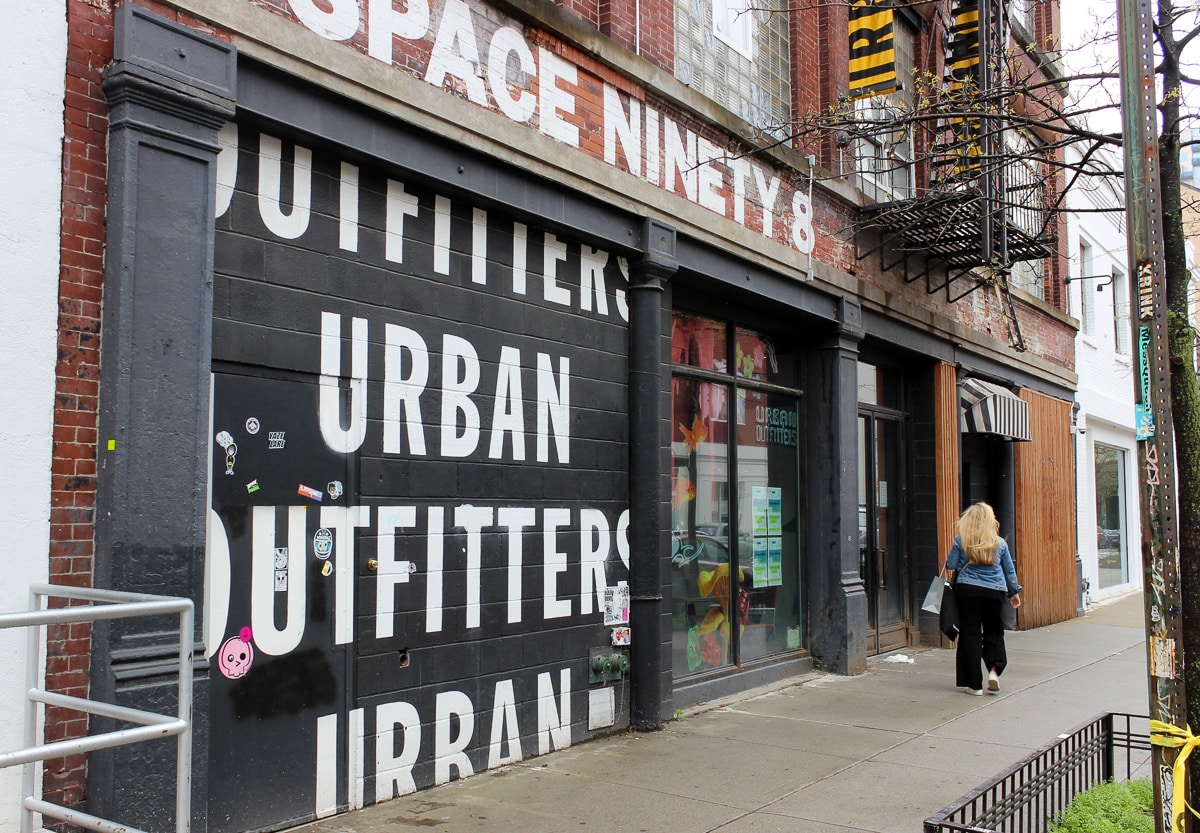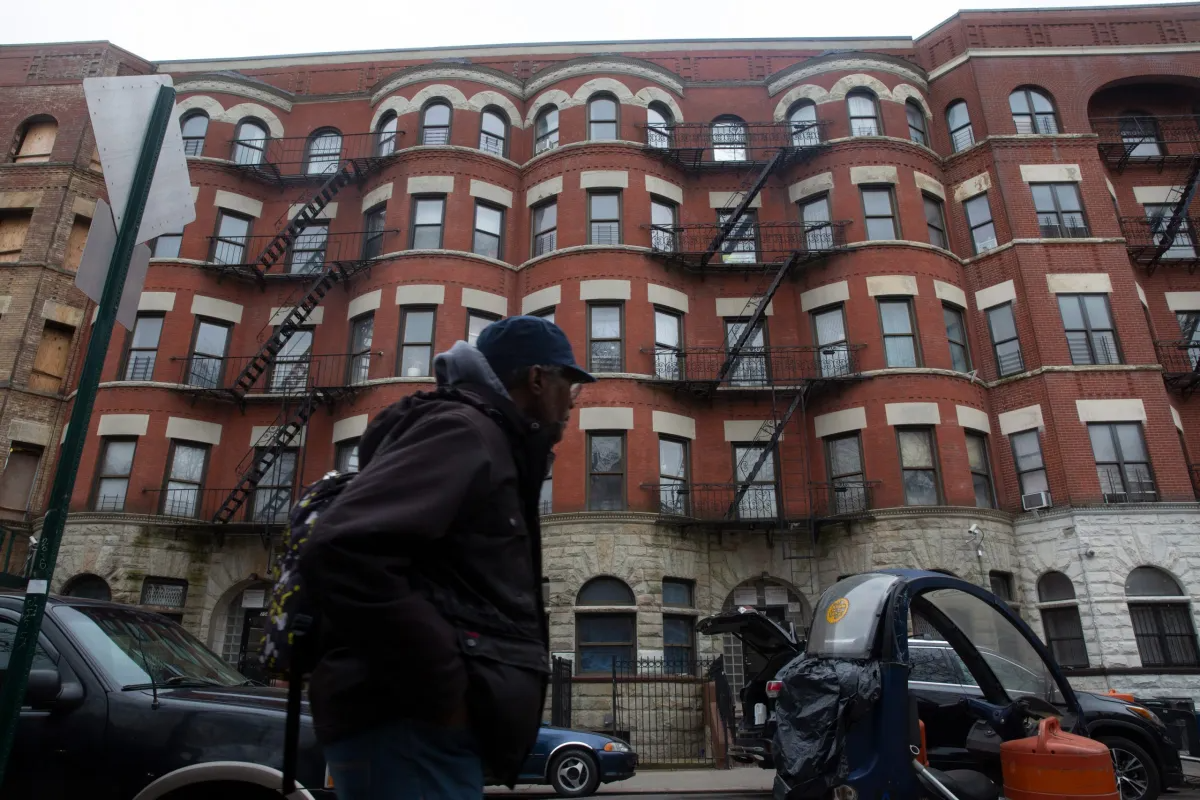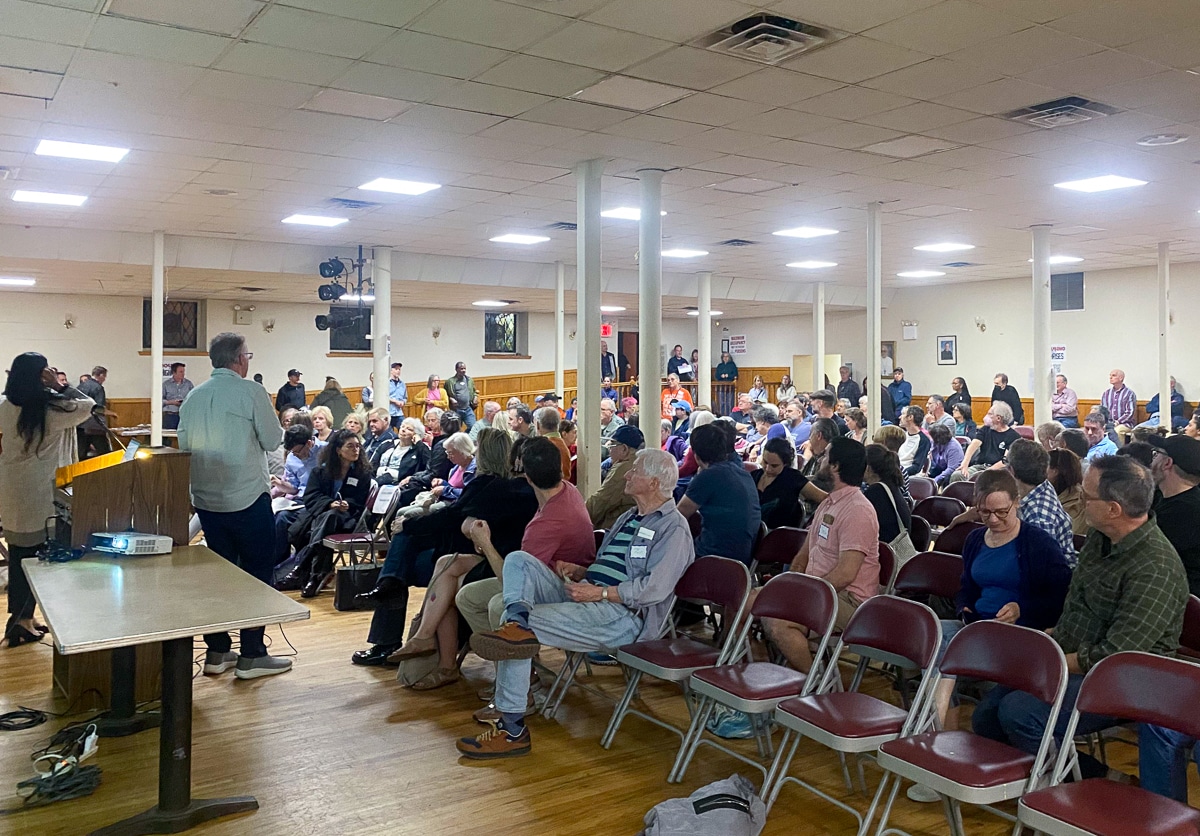Fort Greene Co-Op Chooses Toiling
Despite the low-pitched groan that emanates from the Park Slope Food Co-op due to compulsory work slots, the impending Fort Greene co-op has chosen to follow Park Slope’s model. The Brooklyn Paper reports that every member of the Greene Hill Co-op will work a shift in exchange for discounted organic groceries, though they’re in favor…

Despite the low-pitched groan that emanates from the Park Slope Food Co-op due to compulsory work slots, the impending Fort Greene co-op has chosen to follow Park Slope’s model. The Brooklyn Paper reports that every member of the Greene Hill Co-op will work a shift in exchange for discounted organic groceries, though they’re in favor of a less strict policy than Park Slope’s, which has members work two shifts if they miss one. Can’t have community unless all folks participate, they decided. Now they just need to find a space.
Workers of the Co-op Unite [Brooklyn Paper]
PSFC Produce. Photo by bluesage.









I think that all the hand-wrining about the Park Slope Food Co-op is hilarious and predictable. I am happy that people came to an agreement over their disagreements, but it never ceases to blow my mind how upset people are at the thought of using nearly 3 hours of your life every 4 weeks to help a good community resource grow.
When you come down to it, we all spend much, much, much more time watching crappy TV and movies.
Also, it’s a great resource for people who have never thought about what they eat to actually live/experience the difference. I joined the co-op in about 2003 because I was eating like crap and simply wanted to eat better and give myself a reason to. When I first joined, I didn’t think much of organic versus non-organic. But as the months and years passed, I learned the difference.
I also learned another great thing about local farming. The co-op really makes efforts to work with local suppliers and providers and the end result is always great. The produce is bought for the members in the co-op. It’s not like a supermarket where they stock tons of junk and push it on you. Basically, it’s a huge variety and incredible turnover of stock so you always—and I mean always—get the best stuff.
You could go to Whole Foods, Fairway or even local markets, but in my experience the quality has never come close and the price is never the same.
Also, I do need to address this incredibly wrong statement:
“I think it’s a good thing that highly paid lawyers and professionals want to get their hands dirty and stock shelves, albeit a couple of hours a month.”
The Park Slope Food Co-op is truly made up of a cross section of Brooklyn on all levels. You do have the well-heeled, but they are nowhere near the majority. The rest are a mix of middle-class, working class and even unemployed of all races and ethnic groups. Seriously, it’s one of the few places you’ll see Orthodox Jewish moms, Rastafarians, plain old NYC folk, hipsters, lawyers and even MTA workers mingling without issue.
FWIW, before I joined I held a lot of the same misconceptions. And after I joined I realized how incredibly wrong I was.
Also I think the work requirement is valid. Labor costs are high. And by having members be workers, you actually get much better service than you’d imagine. Yes, there’s always one or two stories about the co-op everyone heres. But what about people’s shopping experience elsewhere? I’ve never been treated more like crap than when I had to ran out to Key Food this past week. But do people blog about it? No.
The point is, either you like the idea or you don’t. And frankly in Fort Greene I think there will be far more people who love the idea of working than not.
Heck, is there any other place in NYC nowadays where one can actually teach a kid—or a slacker roommate—the value doing basic work?
This is a good thing folks. You hate it, just don’t go there.
Hmm, maybe registration is good after all! Nice ending…excellent last posts, ER and MM, wish I could’ve said it that demonstrative a way.
The support for small farmers is an important part of places like the Co-op and possible only because economic justification is not its sole purpose.
11225, admit that I shop mainly when I know the lines will be short, so maybe never noticed unmanned checkouts. My shift is weekend and always over-subscribed and packed. Also, not a criticism on my part about “uncertainty in shopping,” just a comment on the extensive stock the Co-op has and the difficulty keeping the shelves full with an all-volunteer labor force. And I accept that.
And, finally at some risk, I’ll say in response to benson’s “Do they get their hands dirty?”: note one poster response “no way in hell would I work there,” implying that it was definitely infra dig for him.
Montrose and East River;
I think we have actually reached a point of agreement, in a roundabout sort of way.
I haven’t seen anyone on this thread really argue that the COOP is economically effective. Indeed, Montrose seems to readily acknowledge that it is, in fact, not efficient.
What it comes down to, therefore, are the intangible benefits and values: the sense of community, the benefits of “toiling in the field of the COOP”, etc.
I am not here to disparage anyone who is seeking those benefits and values. I acknowledge that there is idealism that fuels it, though I still believe that it might be “misplaced idealism”, as I stated above. Having said that, if folks believe otherwise,I have no problem with it. Hence, we have reached a point of agreement.
Have a great day!
Benson, I do not advocate that everyone needs to work the land in order to appreciate farming, any more than they need to mine in order to appreciate mining. You take my remarks to the extreme in order to make them seem ridiculous, but my point is that many people, irrespective of income or status, feel that toiling in the fields of the Co-op, as it were, is a task worthy of their time. It doesn’t matter whether they are restocking shelves, working checkout, walking someone out, or turning all of the apples stem up in the bins, if that was necessary- it all works towards the common goal of keeping the Co-op going and functioning to the good of its members.
We, as human beings, are not meant to do everything in efficient, cost effective, or even sensible ways, at every moment of the day. Giant agro-businesses may be more cost effective ways to farm, but they are often soulless, and can sap the human spirit. See collective farms in the Soviet Union. Agrarian societies may not be as “advanced†as industrialized societies, but it is certainly debatable as to which society is more creative, more at peace with itself and its neighbors. The Amish and the Mennonites continue to be viable communities for reasons other than tradition and religion. Someone working at the Co-op may be doing little more with his/her 3 hours than sweeping, or breaking down boxes for recycling, but it all has value, whether that person is a bank president, or his auto mechanic, doing the work.
I think we need all to make the world run right – the farmer on his land, the businessman and the auto mechanic, as well as the friendly chaos of too many people putting in their time at the Food Co-op. I don’t understand the desire for order and efficiency to the detriment of the human soul. People packed “efficiently†into tall buildings and orderly cities, huge corporate farms “efficiently†working the land, and Co-op members ordering their time “efficientlyâ€, as to not personally lose money by being there. Bleech! It may all line up in a cost benefit analysis, but it is not the world I want to be in. Freedom and happiness are found both in order and in a bit of random chaos and spontaneity.
“What I don’t get about the COOP is this larger goal. Where is the “greater good” in organizing a COOP for the basic economic function of procuring one’s food?”
This may seem like an odd thing to say but there are ethical and social issues about procuring the basics of life. Members don’t only talk about the lower prices and quality of the coop food- they talk about the community, responsibility, work ethic, supporting small farmers and the ability to offer high quality food to anyone who wants to join. Its a grass roots organization, one I greatly admire. Without being utopian, its an idealistic response and an ethical one. It’s not a charity, but it does operate for the “greater good” and I think you’ll find there are many worthy organizations deserving of your volunteerism that do so without being charitable in the classic sense.
It is my own opinion but I believe that anything that can make us behave or act in a better, more responsible and considerate way does operate for the greater good and the coop does that. It also allows those who ordinarily couldn’t afford it, be able to buy fresh, healthy food. It empowers people to do for themselves, it’s refreshingly democratic because a lawyer’s time is worth the same as a secretary’s here, and finally it reinforces the idea that everyone is responsible for making this a better place.
Sorry for the wordy response – (I blame Montrose for being a shining beacon of language worthy of emulation).
Montrose;
I don’t get the point of your e-mail.
Surely I agree that it is a good thing for all of us to get our hands dirty from time to time, to keep some perspective in life. For instance, I still paint my own place, even though, from an economic POV, it is probably not efficient.
It is still my point, however, that the COOP does not do this. Do people farm in the COOP? No. Do they get their hands dirty? Some do, but others don’t. Where is the “hand dirtying” in escorting a wagon of food to a person’s home? I still maintain that the primary purpose of the COOP is economic, and in that mission, it does poorly. I still believe that it is wasted human capital to supply so much free labor to such a base goal, rather than more loftier ambitions.
Let’s take this one step further. Should we open up mines in NYC, so that I can appreciate the hard work of miners? How about opening up a cement quarry right next to Prospect Park? By the logic of your argument, why shouldn’t we do this?
Finally, you misunderstood my comment about food procurement being on the bottom rung of the economic ladder. This statement was not meant as a sign of disrepsect towards farmers or food distribution workers. Rather, it is an economic fact of life that if a society wants to evolve, one of the first steps it must take is to reduce the amount of resources necessary to feed its population. If you look at the poor countries of the world, it is those who still have an overwhelmingly agricultural economy. Is this what you are advocating? Moreover, it is to the benefit of farmers that this trend happens. Those farmers left in the sector tend to do better, as the oversupply is reduced, and efficiency of scale comes into play.
I’ve spent my career, first as an engineer and later in sales, in the manufacturing sector. You want to talk about distressed sectors? You want to talk about diminishing prospects, as I’ve seen factory after factory close here? However, I do not stare at my navel. I understand the forces that are shaping this development, and I do not demand that folks open up an inefficient factory in Fort Greene so that they can understand the stress that those of us left in this sector are undergoing.
Benson: The larger goal is running the store. We’re a really busy place, it takes a lot of person-hours because of the nature of the place. There’s turnover every single 2.5 hours all day, every day. It takes time and energy to train/show/communicate with each new crew that comes on and often many of those people are new to that job, or new to the coop. Now, while many of the jobs that are happening aren’t necessarily complex, there’s information that has to be relayed by a handful of staff people to a much larger group of people. While there are many systems in place, we often (jokingly) refer to it as “controlled chaos”.
Similarly to how you have become frustrated in trying to explain economics to those who are not understanding your points on this thread – well, I personally become frustrated at the many folks who rail on the Coop who have not been members, and in many instances have not even been inside. I’m sure you’ll find that I’m missing your point too, but the purpose and value are that by not raising the markup as high as other stores, we offer better quality food that is local whenever possible, fresher, with many organic choices for much more affordable prices. Like one of the previous posters said above – I wouldn’t be able to buy what I do at other places, because I can’t afford it. And I wouldn’t want to have to afford it, if you catch my drift – it’s food! And quality food should be accessible to all people no matter what neighborhood you’re in, or however much you make an hour.
and CMU: [ahem, okay i’m trying to get ‘serious’ now:] I appreciate your many hats, and all I wanted to comment on is just about the no empty checkouts and the product un-reliability. Many weekday afternoons we have empty checkouts. Many weekend early mornings we have empty checkout stations, as well as later nights friday and saturday. These have become popular shopping times because they’re not the busy rush-hour times, but then there’s not enough people working at them because maybe they’re not when a lot of people want to work, or people who are scheduled don’t show up…blah blah, on and on. I’m at the Coop a lot, and observe it with my eyes and ears.
And with the “getting things up from the basement” point – I may not have written about that clearly. I really meant to say that lots of stuff gets purchased so rapidly that we’re re-stocking it several times in a workshift (yogurt, kombucha anyone?). The shelves get restocked often all day long, which is work, and that’s really all I was saying.
I think it’s a good thing that highly paid lawyers and professionals want to get their hands dirty and stock shelves, albeit a couple of hours a month. Procuring food, as Benson puts it, should not be at the bottom rung of the ladder. Without food, we die. Without food distribution, we would soon succumb to food riots like Soviet Russia or a war time refugee camp. Where would we be if farmers thought it was beneath them to farm, or for that matter, builders thought it was beneath them to build, etc. Farming and working with one’s hands is as valuable, arguably more valuable, to a society than stock brokers or corporate drones. We need to remember that in today’s overly materialistic world.
Since we are in a city, and people can’t realistically grow or raise their own food, the food coop is a great idea, and a good way for people from all walks of life to share in bringing a valuable resource – food, into the community. You may find that too touchy feely and socialistic, but it is a good thing, nonetheless. Obviously thousands of people do, or it would have died out with fringed jackets and love beads.
Benson — the fact is I don’t make enough money to buy exclusively organic at Whole Foods or Fairway or Union Market. Good for you if you do, but plenty of us don’t. The coop does a very good job of making organic food affordable to me. You appear to believe that everybody within range of the Coop is extremely well-off. You’re wrong.